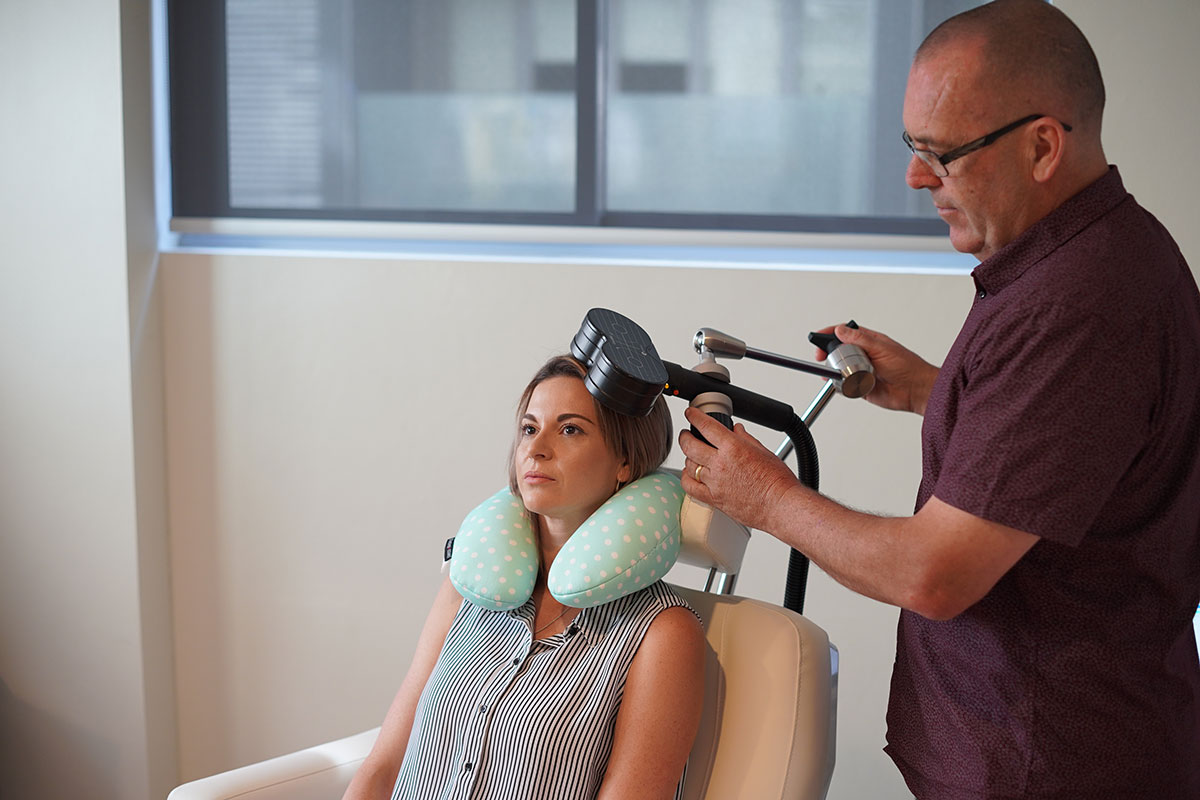When anti-depressants don’t work?
For some people, standard treatments are not effective. In many cases, medications and psychotherapy (speaking with counsellors and other professionals) simply don’t work. That’s when it is often a good idea to try something new.
Typically, a good time to consider this is when two or more anti-depressants have failed to reduce the symptoms or if side effects are so significant they become intolerable.
TMS Treatment benefits
There are many benefits in choosing TMS as a treatment for depression, beginning with the fact that it is drug-free and non-invasive. Many people are concerned about the side effects of consuming anti-depressant medications and for good reason. Anti-depressants can have a number of documented side effects on the human body, ranging from nausea and weight gain through to insomnia and loss of sexual desire. TMS has been used on patients for more than three decades, and there have been no long-term risks associated with the procedure.
Another benefit is that it is a straightforward process, with patients staying awake and alert throughout. You can have a cup of tea, listen to some relaxing music and read a magazine while it is being performed.
And of course, the greatest benefit is that it works. Patients report a great improvement in their symptoms, even when other treatments have failed. The improvement is not limited to the period when the treatment is being carried out – generally between four and eight weeks – and continues well afterwards. A number of studies have shown that this treatment method has significant long-term effects on patients.
Sydney TMS Australia Clinics
We operate three clinics located in Sydney, Australia; Bondi, St Leonards and Castle Hill.

